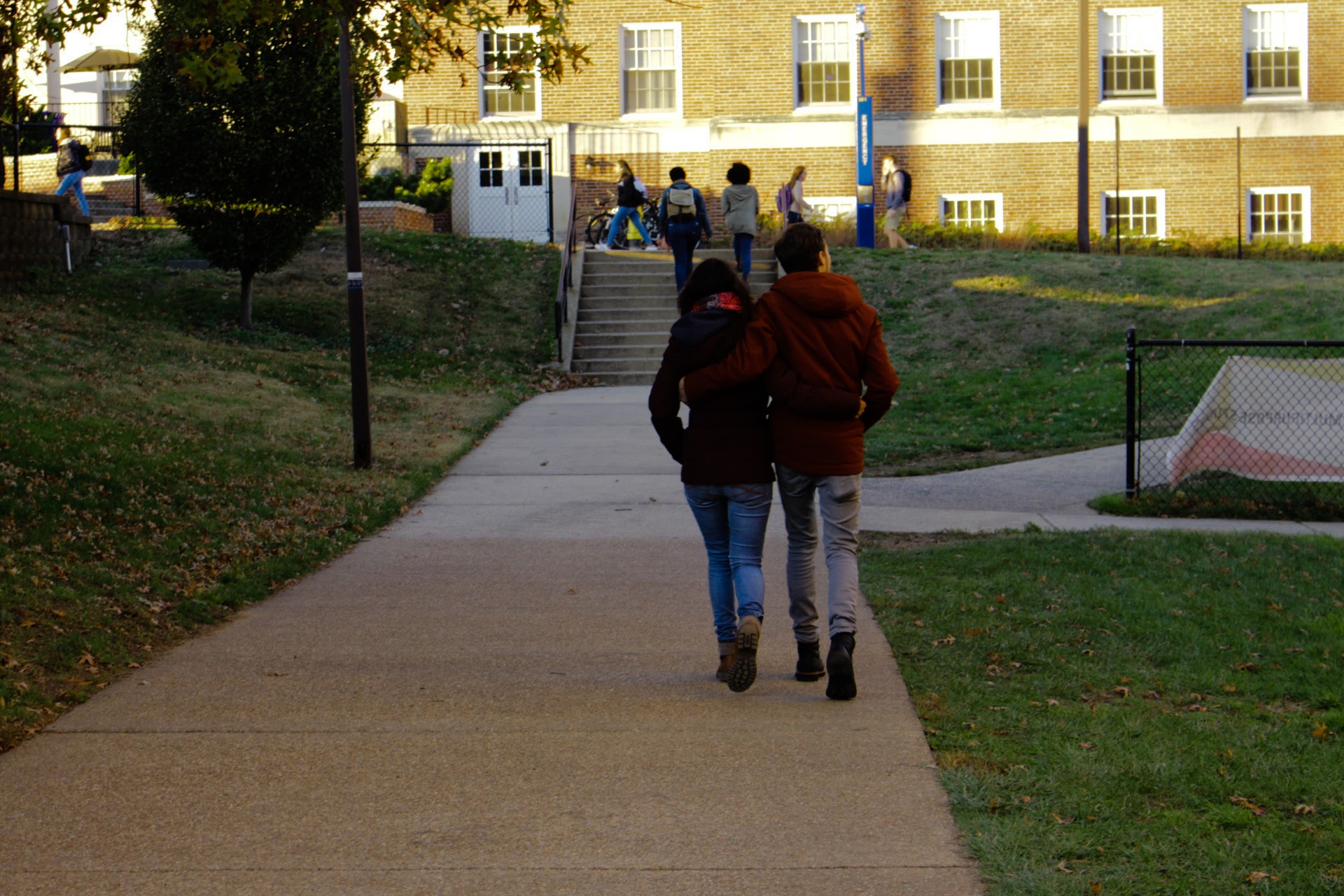By Matt Perez
For The Diamondback
This article is part of The Diamondback’s annual sex guide. Read the rest here.
As the cold winter months near, many believe the phenomenon of “cuffing season” has come into full swing, with cuddling, staying in and watching a movie on Netflix as the activities of choice for many University of Maryland students.
For junior Rachel Goldfinger, an operations management and business analytics and mathematics major, the frigid weather means spending more time indoors.
“Once it gets cold, people are over the single life,” Goldfinger said. “They’re like, ‘All right, we just want to stay in, watch a movie [and] drink hot chocolate.”
But Goldfinger said this supposed “season” can add a lot of pressure to those who are single during these cold months.
“Cuffing season is very lonely if you don’t have anyone,” Goldfinger said. “You just want a cuddle buddy.”
Most students, like junior Perveen Gulati, a finance and information systems major, said cuffing season occurs during the winter because of lower temperatures and thus less time spent outside. Everyone “just wants to have someone to cuddle with,” Gulati said.
But some students, like Ruby Tamunokuro, a freshman nursing student, said cuffing season isn’t — or, at least, should not be — a motivation for couples to get together.
“Just date to date because you like the person, not because it’s a season,” Tamunokuro said.
Junior Albert Park, a chemical engineering major, also believes when people form relationships, it has nothing to do with a specific time of the year.
“I believe people get cuffed; I don’t believe there is a cuffing season,” Park said.
However, the reasoning behind cuffing season may have more to do with physiological science than with spending time indoors. Dylan Selterman, a psychology professor who studies interpersonal relationships, dating and attraction, said he is skeptical about cuffing season.
Some psychologists believe the colder weather correlates with a desire for social intimacy. A 2011 study from the scientific journal Emotion discovered humans tend to associate physical warmth with social warmth, explaining that when people’s bodies become cold, social intimacy and affection act as comfortable substitutes.
However, Selterman said he believes more concrete research must be conducted before drawing any such conclusions.
“There’s a lot of research on embodied cognition that have shown those effects, but some of [the studies] haven’t been replicated, so I’m a little bit more skeptical on the connection between social warmth and physical warmth,” Selterman said.
Instead, Selterman referenced the “closing time” psychological effect, which theorizes that as the night comes to a close and options for hooking up begin to dwindle, individuals seem to be more attractive. But Selterman said he does not believe this effect would necessarily apply to the winter months as a whole.
“It’s not clear to me that there would be something about the winter that would warrant this [effect],” Selterman said. “In terms of people being motivated to find relationships in the winter months, if that’s true, then I can kind of see why, psychologically, there would be this extra motivation for finding a partner for cuffing season, similar to what happens in the closing time effect.”



